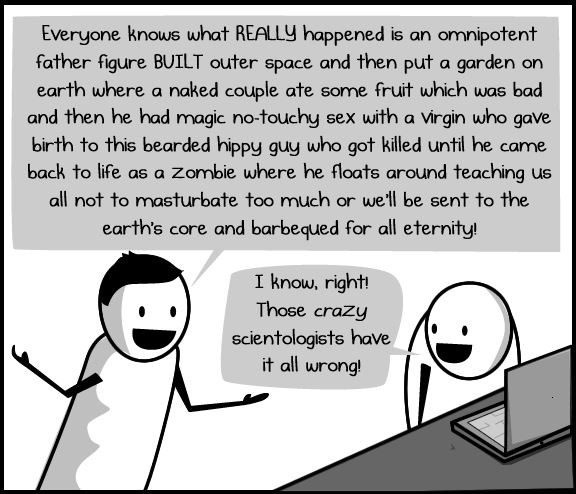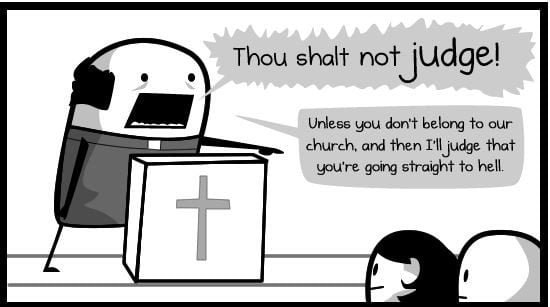
Part One, Part Two, Part Three
Guest post by Kindred Spirits
Sam Harris
One of the more interesting and surprising people who has spoken in favor of mysticism is Sam Harris, one of the so-called “new atheists.” Harris has a PhD in neurosciences and an undergraduate degree in philosophy, and spent considerable time studying Hinduism and philosophy and going on silent retreats.
The neuroscientist and rationalist has made his name attacking religious faith. Who knew he was so spiritual?
From a Newsweek article entitled Rationalist Sam Harris Believes in God:
The neuroscientist and rationalist has made his name attacking religious faith. Who knew he was so spiritual?
For his praise of the contemplative experience in The End of Faith, Harris has received criticism from atheists. [….]
“I see nothing irrational about seeking the states of mind that lie at the core of many religions. Compassion, awe, devotion and feelings of oneness are surely among the most valuable experiences a person can have,” he writes. [….]
Though he prefers the Eastern mystics, he sees some wisdom in the Western mystical tradition as well. “If I open a page of [the 13th-century Christian mystic] Meister Eckhart, I often know what he’s talking about.”
In the following speech from 2007, which appears on his blog, he makes some interesting observations, excerpted below. The first half of the speech is an attack on organized religion, as one would expect from Harris, and you can skip it if you’re pressed for time, but definitely read the second half, which is far more interesting, as it’s quite positive regarding mysticism or contemplation, and makes some interesting analogies.
The Problem with Atheism:
One clue as to how daunting most people would find such a project is the fact that solitary confinement—which is essentially what we are talking about—is considered a punishment even inside a prison. Even when cooped up with homicidal maniacs and rapists, most people still prefer the company of others to spending any significant amount of time alone in a box.
And yet, for thousands of years, contemplatives have claimed to find extraordinary depths of psychological well-being while spending vast stretches of time in total isolation. It seems to me that, as rational people, whether we call ourselves “atheists” or not, we have a choice to make in how we view this whole enterprise. Either the contemplative literature is a mere catalogue of religious delusion, deliberate fraud, and psychopathology, or people have been having interesting and even normative experiences under the name of “spirituality” and “mysticism” for millennia.
[….]
Leaving aside all the metaphysics and mythology and mumbo jumbo, what contemplatives and mystics over the millennia claim to have discovered is that there is an alternative to merely living at the mercy of the next neurotic thought that comes careening into consciousness. There is an alternative to being continuously spellbound by the conversation we are having with ourselves.
Most us think that if a person is walking down the street talking to himself—that is, not able to censor himself in front of other people—he’s probably mentally ill. But if we talk to ourselves all day long silently—thinking, thinking, thinking, rehearsing prior conversations, thinking about what we said, what we didn’t say, what we should have said, jabbering on to ourselves about what we hope is going to happen, what just happened, what almost happened, what should have happened, what may yet happen—but we just know enough to just keep this conversation private, this is perfectly normal. This is perfectly compatible with sanity. Well, this is not what the experience of millions of contemplatives suggests.
Not excerpted above, but he also asks where astronomy would be if each person had to make his own telescope and was unable to borrow anyone else’s telescope. Contemplation is like that — no one else can meditate for you.
Apparently, while many neuroscientists study consciousness, relatively few of them actually engage in silent retreats and regular meditation. In other words, they study consciousness from the outside, but rarely evaluate it from the “inside,” despite there being a long trail of various meditation efforts in various cultures around the world. Sam Harris seems to be one of the few that does both.
Harris, reading the Eastern and Western mystics, understands and has experienced many of the same phenomenon that those mystics wrote about, and yet does not ascribe those phenomena to a “god,” at least not “god” as defined by most Fundamentalists.
More recently, Harris has written a book about meditation: “Waking Up: A Guide to Spirituality Without Religion. I have not read the book, but I think I read a few interviews about it when it first came out, and it appeared to be in line with the excerpts above, but with a lot more technique on how to go about meditation. I also downloaded and listened to one of his guided meditations.
To be continued…
Share This Post On Social Media:















 …before Israelite religion denied the existence of other Gods than Yahweh, it went through a phase of granting their existence but condemning their worship (by Israelites, at least; if the Moabites wanted to worship Chemosh, that was their business). In technical terms, Israelite religion reached monotheism only after a period of “monolatry” — exclusive devotion to one god without denying the existence of others.
…before Israelite religion denied the existence of other Gods than Yahweh, it went through a phase of granting their existence but condemning their worship (by Israelites, at least; if the Moabites wanted to worship Chemosh, that was their business). In technical terms, Israelite religion reached monotheism only after a period of “monolatry” — exclusive devotion to one god without denying the existence of others.




